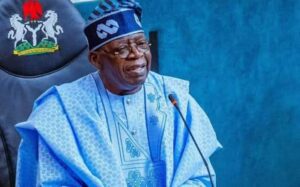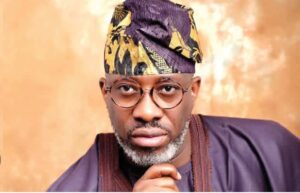Oyetola, a semblance of Platonic ‘philosopher ruler’
By Miftau Adekunmi Adebowale
From the prism of political thoughts, the idea of a “philosopher ruler” as conceived by the Athenian political thinker, Plato (428/27 – 347 BC) was the linchpin of his ideal state; a political and governance arrangement anchored on justice, morality and all forms of good.
The key to the notion of the “philosopher king or ruler” is that the philosopher is the only person who can be trusted to rule well. Philosophers are both morally and intellectually suited to rule: morally because it is in their nature to love truth and learning so much that they are free from the greed and lust that tempts others to abuse power; and intellectually because they alone can gain full knowledge of reality.
Plato strongly believes in the “ideal State” and to him, it seemed natural that competence should be the qualification for authority. The ruler of the State should be one who has the peculiar abilities to fulfill that rigorous and purposeful function governance.
Looking at history, the world can boast of some rulers who had natural competence, rulers who are philosophically inclined and these same rulers gave a good account of themselves when they ruled. Some of these great rulers are Odumegwu Emeka Ojukwu, Nelson Mandela of South Africa, Martin Luther King Junior of America, Mahatma Gandhi of India, Kwame Nkrumah of Ghana, Dr Nnamdi Azikiwe of Nigeria, Leopold Sedar Senghor of Senegal, Ken Saro Wiwa etc. These great men of history distinguished themselves as prominent and reliable personalities during the difficult periods by helping to bring under control, moments of hardships and difficulty.
As a matter of fact, Governor Adegboyega Oyetola has in theory and practice, distinguished himself from common political leaders, and has undoubtedly exhibited the virtues and principles of a philosopher, building an ideal state of Osun with the requisite skills and qualifications needed in the great task of governance targeted towards the general wellbeing of all.
Plato further describes a philosopher in governance as one who would be able to administer justice and act for the good of the community; one who would have a good character, a calm disposition and a sound mind; and one who would have the qualities of a ruler, namely truthfulness, high-mindedness, discipline and courage.
The foregoing descriptions really suffice all that Oyetola’s personality duly represents as a leader, which are even endearing him more to the people of the state. He is not power intoxicated and arrogant; and has brought at least, a modicum of moderacy to the existent enormous executive power at his disposal. Even, this is the more reason why stakeholders in the society always give kudos to him for his simplistic and modest approach in the affairs of the state, yet not without significant results. This is indeed, a distinguishing factor of a philosopher leader.
In the same vein, a ‘philosopher ruler’ would always be devoid of emotional and economic considerations in governance but be public-spirited and wise. Oyetola has long ago, been ignited by his passion for people-oriented governance with an utilitarian notion of bringing happiness for the greatest number of people. Coming on board, the state resources was lean and Oyetola ensured he used his financial wisdom, administrative deftness and humanitarian disposition to maximize the state resources for unexpected greater deliveries.
With the meagre resources in the state, Oyetola has thrown the naysayers into confusion with his magic wand and midas touch rooted in fiscal probity, administrative discipline and above all, the spirit of social justice which is the fundamental necessity for engendering a stable and prosperous state.
Since the ‘philosopher ruler’ is poised to see to an effective distribution of values for socioeconomic development, Governor Adegboyega Oyetola is doing the wonders of all-time by effectively allocating the limited state resources to ascertain a balanced development of all critical areas without one suffering for another. The governor is unexpectedly paying full salaries of workers, constructing myriad of capital infrastructural projects, giving unprecedented facelift to the health sector, turning the education system around, changing the face of commerce and shifting focus to the area of human capital development among others.
Wonder why Governor Oyetola is not so disposed to playing arbitrary politics in governance despite his ‘seemingly absolute’ executive power, he only represents the ruling group of platonic ‘philosopher kings’ dedicated not to politics but to philosophy, solving the conundrum of absolute power because he is compelled and controlled not by a personal power but by the impersonal agents of timeless truth. The governor is himself governed by the divine element within him (truth) which is superior to him, making political power which he is entrusted with, become etherealised into such principle.
In fact, the corollary of ‘philosopher ruler’ is sufficient enough for us to understand the manner in which Governor Oyetola is administering the state affairs and we are no longer caught in the puzzle of bewilderment and surprises again. He is just a new breed in political governance guided by ultimate ethics and virtues to promote a just and happy society where harmony, efficiency and moral goodness prevail.




